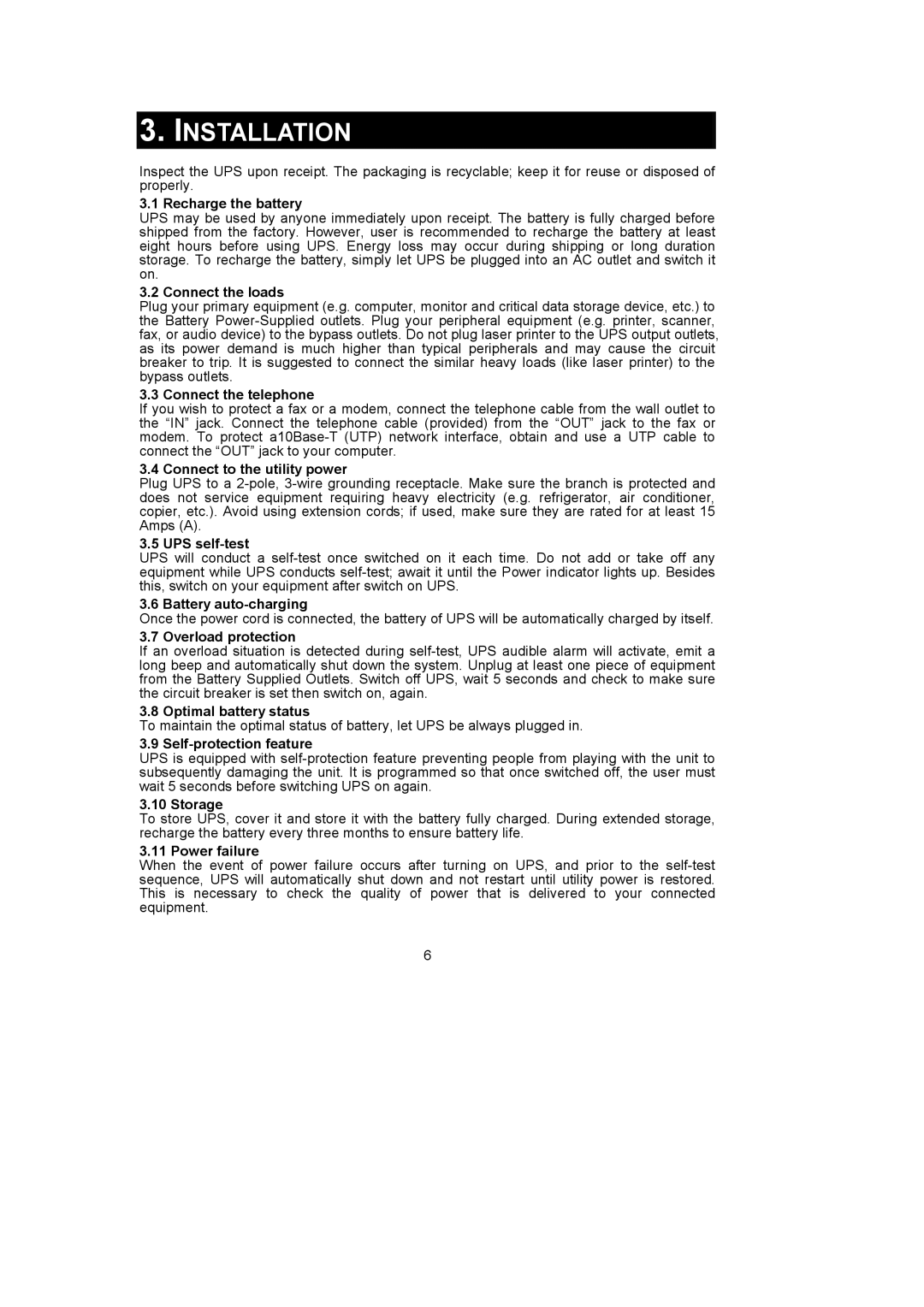3.INSTALLATION
Inspect the UPS upon receipt. The packaging is recyclable; keep it for reuse or disposed of properly.
3.1 Recharge the battery
UPS may be used by anyone immediately upon receipt. The battery is fully charged before shipped from the factory. However, user is recommended to recharge the battery at least eight hours before using UPS. Energy loss may occur during shipping or long duration storage. To recharge the battery, simply let UPS be plugged into an AC outlet and switch it on.
3.2 Connect the loads
Plug your primary equipment (e.g. computer, monitor and critical data storage device, etc.) to the Battery
3.3 Connect the telephone
If you wish to protect a fax or a modem, connect the telephone cable from the wall outlet to the “IN” jack. Connect the telephone cable (provided) from the “OUT” jack to the fax or modem. To protect
3.4 Connect to the utility power
Plug UPS to a
3.5 UPS self-test
UPS will conduct a
3.6 Battery auto-charging
Once the power cord is connected, the battery of UPS will be automatically charged by itself.
3.7 Overload protection
If an overload situation is detected during
3.8 Optimal battery status
To maintain the optimal status of battery, let UPS be always plugged in.
3.9 Self-protection feature
UPS is equipped with
3.10 Storage
To store UPS, cover it and store it with the battery fully charged. During extended storage, recharge the battery every three months to ensure battery life.
3.11 Power failure
When the event of power failure occurs after turning on UPS, and prior to the
6
